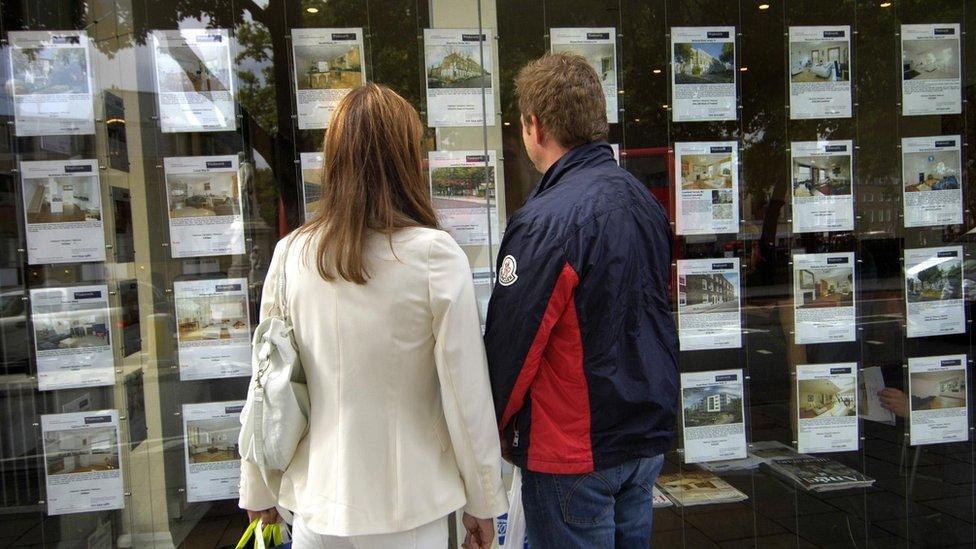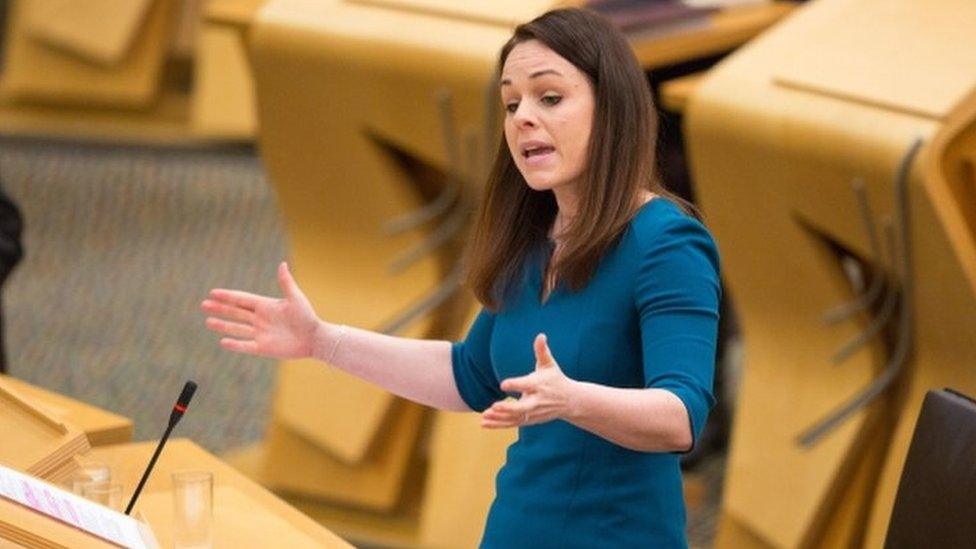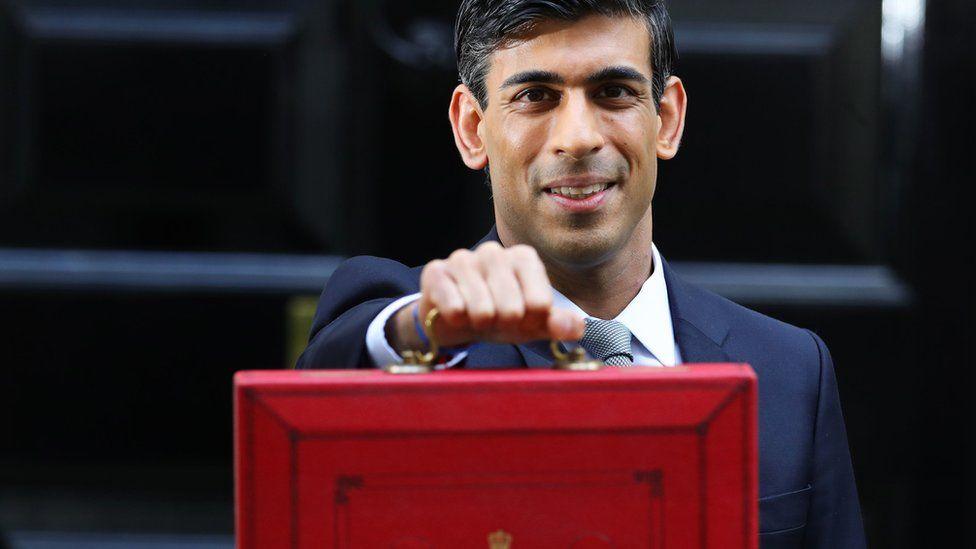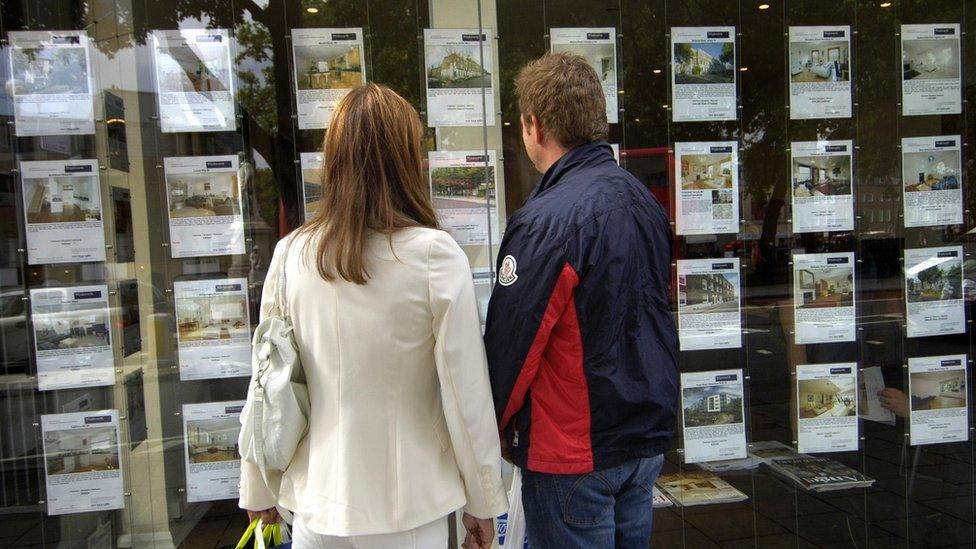Tax cut for home buyers in Scotland will end 'as planned'
- Published

A holiday on stamp duty has been extended as part of the Westminster budget - but this will not apply in Scotland
A tax cut for Scottish house buyers will end as planned on 1 April, despite an extension in the Westminster budget.
The starting point for land and buildings transaction tax (LBTT) was increased during the first lockdown.
Finance Secretary Kate Forbes said the move had "achieved" its goal of supporting the recovery of the residential property market.
The stamp duty holiday in England and Northern Ireland will continue for another three months.
Last year, Chancellor Rishi Sunak announced the tax break on house sales in England and Northern Ireland of up to £500,000 as part of his summer statement of measures to respond to the coronavirus crisis.
Because housing and residential taxes are devolved to Holyrood, this meant there were calls for Ms Forbes to mirror the stamp duty cut in its Scottish equivalent, LBTT.
At the time, Ms Forbes said she had listened to calls and the threshold where the tax kicks in was raised from £145,000 to £250,000 - although this did not apply to second homes.
She announced levels would return to normal at the end of the financial year when she set out the Scottish budget in January., saying support would continue for first time buyers.

Kate Forbes announced the Scottish budget in January
On Wednesday, the chancellor said the tax break in England and Northern Ireland would continue until the end of June. After that, the nil rate band will be set at £250,000 - double its standard level - until the end of September.
Mr Sunak told MPs the extra move was "to smooth the transition back to normal - and we will only return to the usual level of £125,000 from October 1".
'Record' levels of house purchases
Ms Forbes told the BBC's Good Morning Scotland she intended to "stick to the original plan" and end the relief by April.
She said: "It was intended to support the recovery of the residential property market this financial year.
"That has been achieved - the nil rate band was already lower in Scotland and yet we've seen record high levels of transactions and house purchases, so it has achieved its purpose.
"But ultimately, when it comes to tax policy, I have choices and the number one ask from business was to extend the 100% relief for non-domestic rates - that's what I've done alongside freezing council tax to help households in need."
On the Westminster budget, Ms Forbes said "storm clouds of austerity" were on the horizon and that despite a number of positive measures including the extension of the furlough scheme, Mr Sunak was "delaying a lot of the pain until next year".

Mr Sunak said the problems caused by coronavirus were "not going to be dealt with overnight"
Mr Sunak told the programme that there was an increase of £400bn to £500bn by end of this Parliament in his public spending plans.
He said: "The damage coronavirus has done to our economy and public finances has been extraordinary and it's going to take time for us to fully recover from this.
"It's not going to be dealt with overnight and that's why we've set out a clear plan that begins to fix the problem and protect the things we care about, like public services and supporting small businesses and crucially supporting our recovery in the short term."
- Published4 March 2021
- Published3 March 2021
